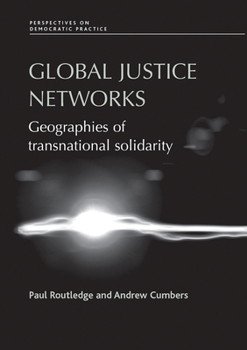Global Justice Networks: Geographies of Transnational Solidarity
Select Format
Select Condition 
Book Overview
Provides a critical investigation of the 'global justice movement'. Drawing upon three case studies - a peasant farmers' network, a trade union network, and the social forum process - the authors argue that the role of key geographical concepts of space, place and scale are crucial to an understanding of the operational dynamics of these networks.
Format:Paperback
Language:English
ISBN:1784993832
ISBN13:9781784993832
Release Date:June 2016
Publisher:Manchester University Press
Length:224 Pages
Weight:0.65 lbs.
Dimensions:0.5" x 5.5" x 8.5"
Customer Reviews
0 rating





